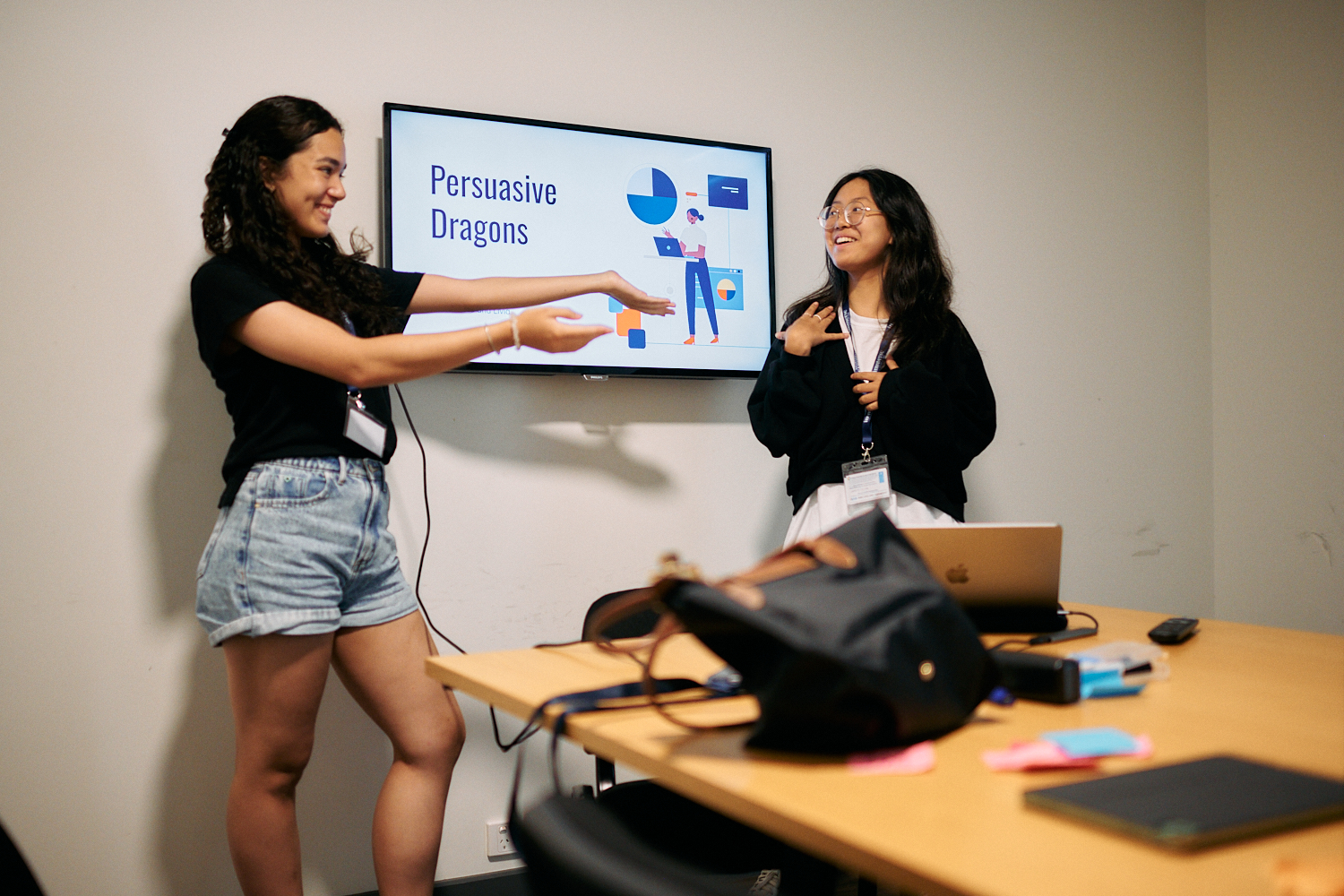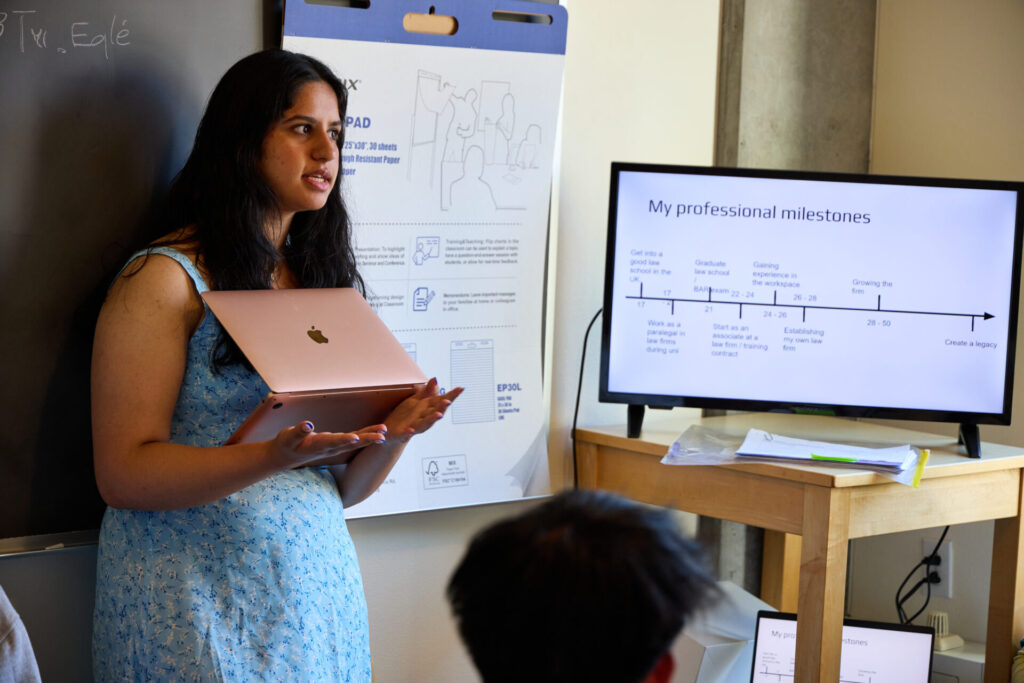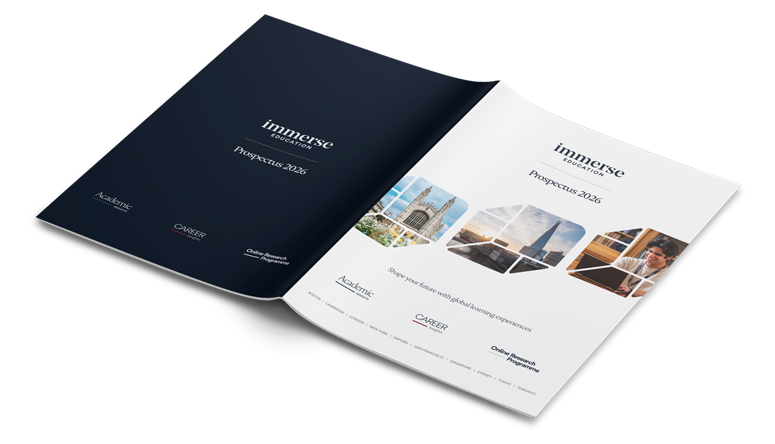Every great public speaker begins with one powerful skill: communication. It is the spark that turns ideas into stories that inspire others to think, act, and create change. When you learn how to improve communication skills, you unlock a tool that shapes ideas, builds confidence, and connects people across cultures.
This belief lies at the heart of the TED Summer School, a programme where curiosity meets communication, and every student learns to express ideas worth spreading.
Through the art of storytelling, listening, and presence, you’ll discover that communication is more than a soft skill. It’s a leadership superpower.
An Approach to Effective Communication
Every great talk starts with one simple idea: that communication can change minds.
Great speakers are trained to structure their talks around clarity, purpose, and connection. They focus not on sounding perfect, but on being authentic and memorable.
1. Start with Purpose
Every great talk begins with a purpose. Always ask, “Why does this idea matter?”
Julian Treasure, in his TED Talk “How to Speak So That People Want to Listen,” explains that powerful speaking begins with honesty and authenticity.
He encourages speakers to use the HAIL principle: Honesty, Authenticity, Integrity, and Love. When you speak from these values, your audience will listen.
By defining their goal early, they ensure every story, statistic, and example connects back to that central message. This technique helps audiences remember not just what was said, but why it was important.
At Immerse, you will practise the same principle by developing talks and discussions that begin with clear intent and meaningful outcomes.
You’ll also explore how to apply this same discipline in workshops that mirror TED’s preparation process.
To improve communication skills, you’ll plan short talks, analyse the techniques of well-known speakers, and receive detailed feedback from expert tutors to refine your structure and style. This hands-on process bridges theory with practice, allowing you to test ideas, experiment with delivery, and learn how to make your message resonate with diverse audiences.
2. Tell Stories That Stick
Stories are at the heart of every powerful talk. Speakers such as Karen Eber and Julia Dhar use storytelling to simplify complex ideas and make them relatable.
Personal experiences turn abstract lessons into human moments, helping audiences connect both emotionally and intellectually. A story allows people to see themselves in your message.
At Immerse, you’ll learn how to use storytelling to strengthen your arguments and inspire your listeners, whether you’re giving a presentation, leading a group discussion, or debating with peers.
Storytelling is a skill you’ll practise across subjects, from the Business Management Summer School to Humanities and Social Sciences programmes, helping you express ideas with clarity and authenticity.
3. Keep It Simple and Authentic
Simplicity is what makes a talk accessible to global audiences. The best speakers use clear language, avoid unnecessary jargon, and communicate as if they are having a conversation.
Authenticity builds trust, and audiences respond to speakers who sound real, not rehearsed.
The right level of simplicity can be developed through sharing your talk in small groups. You will learn to simplify big ideas without losing their depth, expressing yourself with confidence and clarity in every setting.
In essence, watching great talks reminds you that great communication does not depend on perfection. It comes from being purposeful, human, and clear, the same skills you will refine at Immerse Education to lead discussions, present ideas, and communicate with impact in any real-world context.
4 Practical Strategies to Improve Communication Skills
Communication grows through practice, reflection, and feedback. Here are four techniques to help you develop your voice and confidence.
1. Active Listening and Presence
Improving communication starts with listening. As Katherine Hampsten explains in “How Miscommunication Happens and How to Avoid It”, real communication depends on slowing down, checking understanding, and staying present.
Active listening means giving full attention to others before you respond. When you focus on understanding, not just replying, you build empathy and clarity.
Listening actively doesn’t just improve comprehension; it transforms relationships.
In formal public speaking classes, you’ll practise this skill by pausing, reflecting, and responding with purpose. Over time, you’ll notice that careful listening reduces misunderstandings, builds mutual respect, and fosters a sense of teamwork and trust, qualities that will serve you in university discussions, job interviews, and leadership roles.
You’ll learn to listen for meaning, ask insightful questions, and connect thoughtfully, the foundation of effective collaboration.
2. Storytelling as a Tool
Stories transform ordinary ideas into powerful messages. Use narrative arcs to introduce your topic, create tension, and reveal insight.
For example, when pitching a business idea or presenting research, framing your argument as a story helps your audience remember your message.
Our TED Summer School gives you practical opportunities to how to improve communication skills through case studies, seminars, and presentations that mirror real-world scenarios.
3. Confidence Through Practice
Confidence isn’t something you’re born with; it’s built through consistent practice. Rehearse your talk in front of a mirror or record yourself to study your tone, pacing, and gestures.
Amy Cuddy, in her TED Talk “Your Body Language Shapes Who You Are,” demonstrates that posture can change how you feel. Standing tall and open increases confidence and reduces anxiety.
Before your next presentation, spend two minutes practising a “power pose.” This simple exercise helps prepare your mind and body to perform at your best.
Small-group sessions and supportive feedback from tutors give you a safe environment to practise these skills. Over time, you’ll learn that confidence isn’t about eliminating nerves but managing them effectively.
4. Overcoming Nerves
Even experienced speakers feel nervous. Seasoned presenters manage anxiety by focusing on breathing, body language, and connection.
When you shift your focus from self-doubt to your message, fear transforms into energy and presence.
Presenters manage anxiety by focusing on breathing, body language, and connection. When you shift your attention from self-doubt to your message, fear turns into energy.
Coaches such as our Immerse tutors can guide you through exercises to steady your voice, project confidence, and use posture to communicate assurance.
Each of these techniques reflects a central principle that guides great speakers: communication is a learnable art. When practised consistently, it becomes a skill that transforms how you think and lead.
How Immerse Programmes Build Communication Skills in Real Life
At Immerse Education, you’ll do more than learn theory; you’ll live it. Every activity is designed to help you apply what you learn about how to improve communication skills in real, practical settings.
Through our TED Summer School, the learning journey follows a clear structure: Discover → Shape → Share.
- Discover: Identify your passions, explore global themes, and uncover ideas that define your perspective.
- Shape: Turn your ideas into compelling stories through writing, discussion, and feedback.
- Share: Present your talk to a live audience, recorded professionally to showcase your growth.
You’ll collaborate with ambitious peers in interactive workshops. You’ll develop communication through group discussions, receive real-time feedback, and refine your presentation skills through one-to-one coaching.
Similarly, the Business Management Summer School helps you develop communication as a leadership skill. There, you’ll refine key relational skills such as empathy, negotiation, and collaborative problem-solving through pitching ideas and debates.
You’ll learn to communicate fairly, manage differences confidently, and identify opportunities for value creation, which are vital for building strong and lasting connections in leadership and business contexts.
Through these experiences, you’ll see that communication is not only about speaking; it is about thinking critically, connecting deeply, and leading confidently.
Immerse Education’s approach ensures you develop both skill and self-belief, preparing you for success in university, your career, and beyond.
Join the Immerse Education 2025 Essay Competition
Follow the instructions to write and submit your best essay for a chance to be awarded a 100% scholarship.

Why Communication Skills Matter Beyond the Classroom
When you improve your communication skills, you open doors far beyond academics.
The ability to communicate your purpose clearly is what sets great leaders apart. Clarity, empathy, and authenticity allow you to connect with others, build trust, and turn ideas into action.
Here are 5 real-life benefits of strong communication skills.
Five Real-World Benefits of Strong Communication Skills
- Career and Leadership Advancement – Communicating with confidence helps you present ideas effectively, lead teams, and inspire others. These skills are vital for professional success and long-term leadership growth.
- Global and Cultural Connection – Effective communication helps you build relationships across cultures. You learn to adapt, empathise, and collaborate, preparing you for international study and global career opportunities.
- Personal Confidence and Influence – Expressing ideas clearly strengthens your confidence. You develop presence, earn respect, and inspire others in interviews, public speaking, and professional networking.
- Problem-Solving and Decision-Making – Good communication helps you analyse situations clearly, listen to diverse perspectives, and reach informed, balanced decisions that strengthen your leadership and teamwork abilities.
- Lifelong Learning and Growth – Strong communication supports continuous learning. By asking questions, reflecting on feedback, and sharing ideas, you keep improving your understanding and adaptability in every stage of life.
Mastering Communication, Shaping the Future
At Immerse Education, you learn how to improve communication skills and express ideas that truly matter.
Like TED speakers, you practise confidence, clarity, and empathy through collaborative learning and real-world discussions. Each summer programme helps you communicate with purpose and lead with impact.
Explore our TED Summer School or Business Management Summer School to develop the communication skills that define future leaders.



















